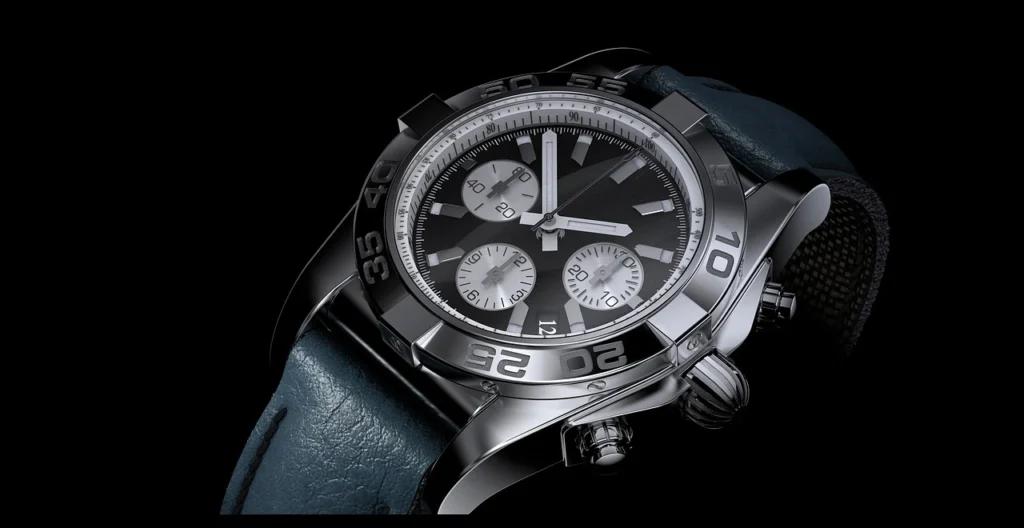Have you ever wondered, if Is Rolex a non profit? Let’s dive into the fascinating world of luxury watches and explore whether the renowned brand, Rolex, operates as a non-profit organization.
Getting to Know Rolex
Rolex transcends its status as a mere timekeeping device; it has evolved into a symbol of elegance and success. Established several decades ago, Rolex has carved a niche for itself, not just as a watch manufacturer but as an embodiment of high standards in craftsmanship and precision.
The brand’s journey began with a commitment to excellence, focusing on producing watches that stood the test of time both in terms of durability and style. Over the years, Rolex has cultivated an image that goes beyond the functional aspect of timekeeping, associating itself with a lifestyle of sophistication and achievement.
However, it’s crucial to recognize that while Rolex is undoubtedly a luxury icon, it doesn’t align with the characteristics of a non-profit entity. Unlike charitable organizations, Rolex operates as a for-profit company, driven by the commercial success of its premium watches. The exclusivity and prestige surrounding Rolex stem from its ability to maintain exceptionally high standards in the luxury market. So, while Rolex may symbolize elegance and success, its primary nature is rooted in the world of for-profit luxury goods.
Understanding Non-Profit Organizations
To answer the question, let’s first understand what it means to be a non-profit organization. Non-profits are groups that exist to help others rather than make money. They engage in various activities to benefit the community. But does Rolex fit this description?
Decoding Rolex’s Business Model
Contrary to what some might expect, Rolex doesn’t operate as a non-profit organization; instead, it functions as a for-profit company. In simple terms, this means that Rolex’s primary objective is to generate revenue through the sale of its exclusive timepieces.
So, how does Rolex manage to uphold its esteemed status in the luxury market?
Firstly, Rolex meticulously controls every aspect of its production process. From designing and manufacturing to testing and assembling, the brand maintains an unwavering commitment to quality. This dedication ensures that each Rolex watch is not just a timekeeping device but a masterpiece of craftsmanship.
Secondly, Rolex has mastered the art of exclusivity. By producing a limited number of watches and carefully controlling distribution, the brand creates a sense of rarity and desirability. This scarcity factor, coupled with the brand’s reputation for precision and durability, contributes significantly to its luxury status.
Moreover, Rolex invests heavily in marketing and brand image. The iconic crown logo, the association with influential personalities, and strategic partnerships all play a role in enhancing the perceived value of Rolex watches.
In essence, while Rolex is a business aimed at making profits, its commitment to excellence, exclusivity, and strategic brand management allows it to thrive in the competitive world of luxury watches. The combination of quality craftsmanship and effective marketing strategies has solidified Rolex’s position as a symbol of enduring luxury.
The Price of Luxury
Rolex’s watches come with a hefty price tag, making them exclusive and sought after. While they’re not non-profit, the brand strategically markets itself to maintain its allure. So, even though Rolex isn’t a charity, it’s an expert in the business of luxury.
Rolex’s Contribution Beyond Watches
Now, let’s talk about Rolex’s philanthropic side. Although not a non-profit, Rolex engages in Corporate Social Responsibility (CSR) initiatives. This means the brand gives back to society through various charitable activities. It’s a way for Rolex to make a positive impact beyond the world of watches.
Debates and Perspectives
People have different opinions about luxury brands like Rolex. Some criticize the high prices, while others argue that luxury brands contribute to the economy. The debate continues, highlighting the complexities of defining organizations solely as non-profit or for-profit.
In Conclusion
In conclusion, the answer to Is Rolex a non-profit? is no. Rolex is a luxury brand operating in the for-profit realm. However, its involvement in CSR activities shows that even businesses driven by profit can make meaningful contributions to society. Rolex remains a captivating enigma, blending opulence with a touch of social responsibility.
FAQs
#1. Is Rolex a non profit organization?
No, Rolex is not a non-profit organization. It operates as a for-profit luxury brand, primarily focused on selling high-end watches.
#2. What makes Rolex watches so expensive?
Rolex watches are expensive due to the brand’s commitment to exceptional craftsmanship, precision, and the use of high-quality materials. The exclusivity and prestige associated with the brand also contribute to the high prices.
#3. Does Rolex contribute to charitable causes?
Yes, despite being a for-profit entity, Rolex engages in Corporate Social Responsibility (CSR) initiatives. This involves contributing to various charitable causes and making a positive impact beyond its core business of watchmaking.
#4. Why is Rolex considered a symbol of success?
Rolex is considered a symbol of success due to its long-standing reputation for producing top-tier, durable watches. Owning a Rolex has become synonymous with achievement, luxury, and a certain level of accomplishment in various fields.
#5. Can anyone buy a Rolex watch?
In theory, anyone can buy a Rolex watch if they can afford the price. However, due to the luxury status and high demand, some Rolex models may have waiting lists, and certain limited editions can be challenging to acquire.


